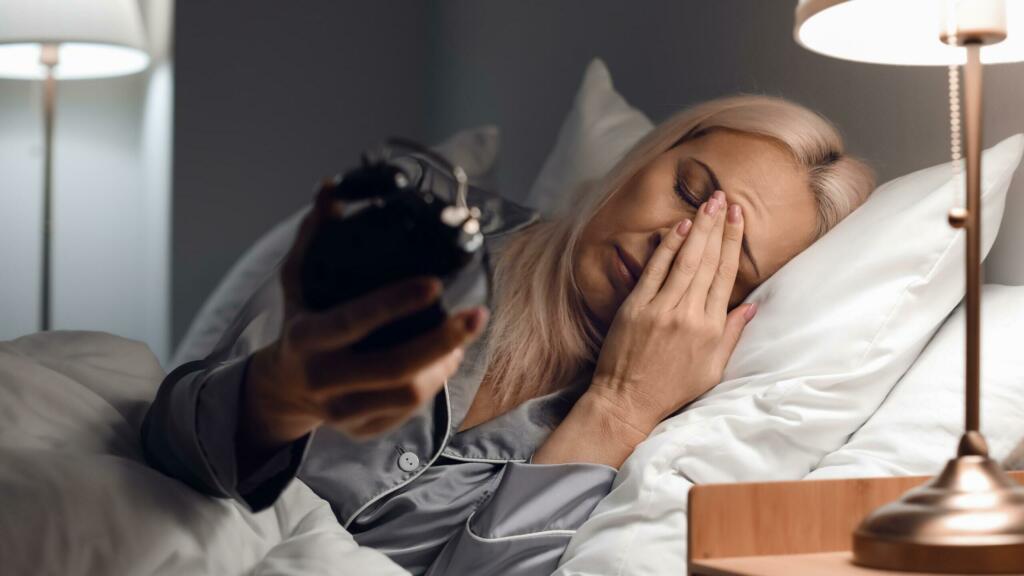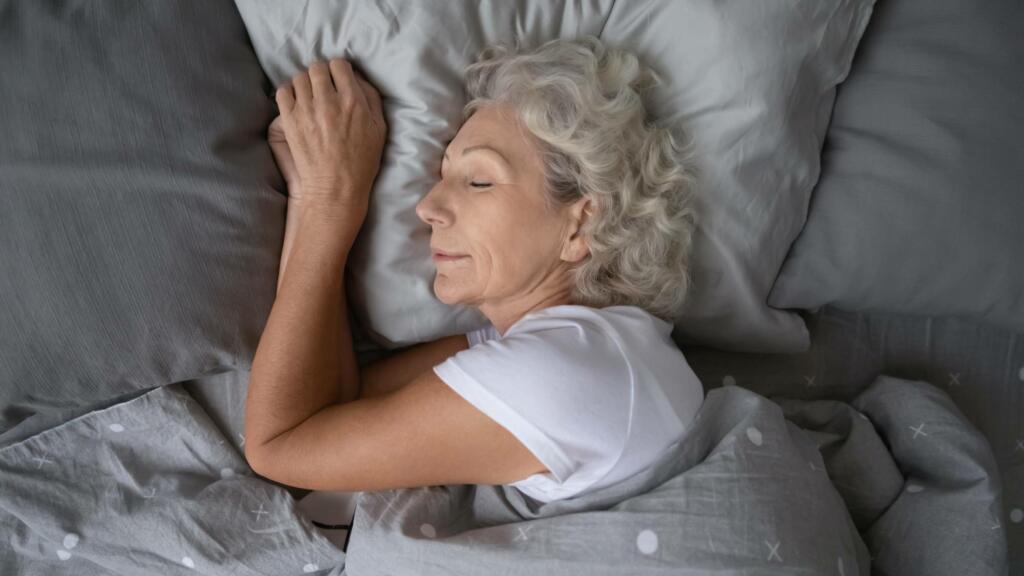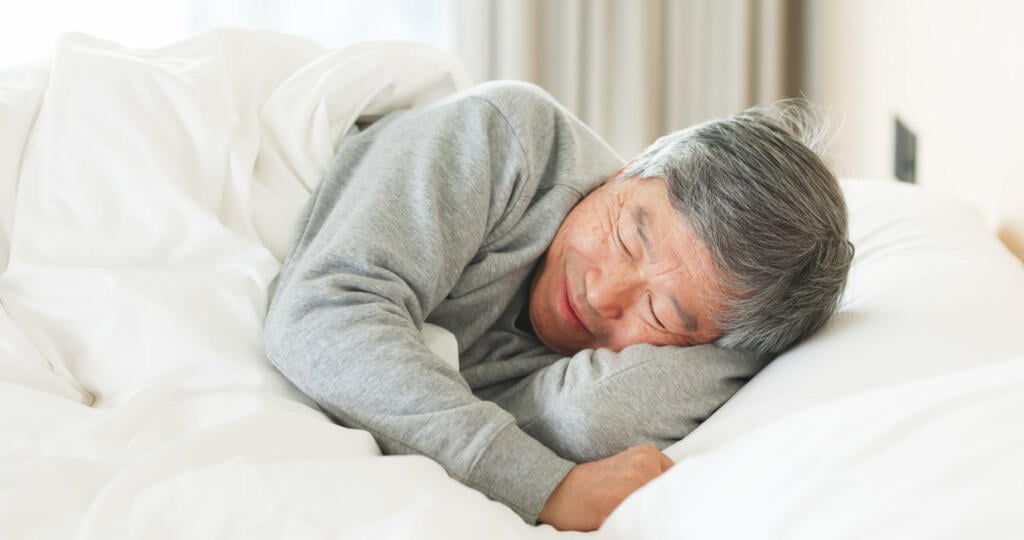
The best bedroom colours for a good night’s sleep
Joy Archer
It may be time to stop fretting about sleeplessness, as a new book reveals there are some surprising benefits of insomnia.
Most of us have experienced insomnia during our lives – lying awake in bed watching the hours tick by, while a gallimaufry of thoughts, worries and ideas keep our brains buzzing and sleep at bay.
We’re in the middle of a sleep crisis, with figures from NICE (National Institute for Health and Care Excellence) revealing that a third of adults experience sleep problems once a week – although this is higher in older people and up to two times more likely in women than men.
Links have been suggested between sleeplessness and neurological conditions, such as Alzheimer’s or Parkinson’s, which adds to the pressure of attempting to achieve the recommended seven to nine hours sleep every night.
But what if there are some benefits to insomnia? What if there is a reason why our minds soar and race in the early hours? Author and sometime insomniac Annabel Abbs has an unusual view of insomnia and argues that it may not be something to fear after all. She tells us more and shows how the research backs up her conclusions.
Most of us have experienced insomnia during our lives – lying awake in bed watching the hours tick by, while a gallimaufry of thoughts, worries and ideas keep our brains buzzing and sleep at bay.
We’re in the middle of a sleep crisis, with figures from NICE (National Institute for Health and Care Excellence) revealing that a third of adults experience sleep problems once a week – although this is higher in older people and up to two times more likely in women than men.
Links have been suggested between sleeplessness and neurological conditions, such as Alzheimer’s or Parkinson’s, which adds to the pressure of attempting to achieve the recommended seven to nine hours sleep every night.
But what if there are some benefits to insomnia? What if there is a reason why our minds soar and race in the early hours? Author and sometime insomniac Annabel Abbs has an unusual view of insomnia and argues that it may not be something to fear after all. She tells us more and shows how the research backs up her conclusions.
 Credit: Shutterstock / Pixel-Shot
Credit: Shutterstock / Pixel-ShotAbbs has written a book Sleepless about discovering your night self. She argues that occasional insomnia could be relished, rather than dreaded.
She says: “This book is not a paean to insomnia. Rather it is an attempt to remove some of the anxiety that now accompanies not sleeping, to understand why we don’t always sleep.
“Generally when you can’t sleep you feel desperate because you are worried you won’t be able to perform the next day.”
She wants to break that cycle and suggests that our brains and bodies perform differently in the early hours and exploring our night selves can play a part in helping improve our sleep overall.

In the winter of 2020 Abbs went through a series of bereavements. She kept herself busy by day but remained wide awake at night. She started searching for answers to her insomnia and why sleep can elude us – and found some fascinating answers.
It turns out that our bodies and brains change at night and there is a reason why, if we wake in the early hours, we may feel alert, find ourselves obsessing over events that happened years ago or even thinking dark thoughts.
Abbs explained that research has found that during the night the contents of our blood, breath, bones, saliva and skeletal msucle change. We produce different hormones which rise and fall according to the hour. Breast cancer cells divide more quickly, our muscles weaken, our bones are rebuilt, our fat cells, kidneys and intestines slow down, our temperature falls and our appetites fade
A 2016 study noted a sharp rise in suicides and suicidal thoughts between midnight and 6am. Another study in 2022 suggested we have an amplified tendancy for criminal activity, violence, self-harm, substance abuse and unhealthy eating during the night. Even reformed smokers were most likely to lapse after midnights.
Abbs explains that there are five suggested explanations to why we think differently at night.
“Our brain fills up during the day and needs a nightly prune to create space for the next day’s learnings,” says Abbs.
“As the muscles around our body get tired at the end of the day, so does our brain. If you are awake at night many of our synapses are saturated so our brain looks for new pathways.”

At night the hormones that keep us cheerful (serotonin) drop away as our bodies prepare for sleep – instead we are flooded with melatonin, which helps us sleep.
“But curiously dopamine, the hormone of motivation and reward, peaks at night, while testosterone, associated wtih impulsivitity and risk, peak before dawn,” says Abbs. “Some researchers say this could be why impulsive, sensation-seeking behaviour is most likely to happen at night.”
It means that if we are awake and anxious about not being able to sleep then our body will produce adrenaline, which can perpetuate the cycle of sleeplessness.
Repeated studies show that many of us are more likely to feel upbeat during the day and downbeat between 1am and 4am. Researchers still don’t know whether this is chemical, circumstancial, genetic, evolutionary, cultural or social.

Abbs explains that in the past darkness was dangerous and some researchers suggest our brain works differently due to a throw back from our ancestors.
“Hunger may have faded after dark to deter us from foraging for food while predators lurked nearby and a ready supply of nocturnal aggression meant we could respond instantly to attack,” she explains.
The prefrontal cortex behaves differently both when we are severely sleep deprived and when we are awake at night. This area gets particularly fatigued and connections between it and other sections of the brain weaken at night.
Some scientists think our dreams are partly caused by this loosened grip – meaning at night our brains can run amok!
Abbs says: “All this means that if we are awake at night, we feel more deeply, imagine more vividly. We may be more spontaneous or emotionally open. Dangerous, unusual and surprising ideas may come to us too.”
She adds that this may be why many writers and artists, including Emily Dickinson, Lee Krasner, Louise Bourgeois and Laura Cereta, produced some of their best work while awake at night.
Abbs said: “I pledged never to worry about the quantity, quality or shape of my sleep again. If I don’t sleep well, I may be a bit grumpy and need to pause before answering someone, but I will survive.”
And the scientific world also seems to be changing its tune about our need for a full night’s sleep.
Research published last year found that people over 60 who woke at night were 40 per cent less likely to get dementia than those who slept all night long.

Abbs says the most important thing is not to panic if you can’t sleep. Instead she suggests tuning into how differently we think and feel at night and try some of her suggestions below.
She says: “Make peace with your restive brain, embrace your night self and chances are, you too will sleep again.”
Keep the light low, use red lights on torches to avoid disturbing sleeping partners or even candle light. Avoid the stimulating glow of blue light.
Use the opportunity to bring a different perspective to unsolved issues from the day. Never put anything into action but write down your feelings and conclusions.
Abbs suggests keeping an unlined notebook by your bed to write or sketch on when you are awake in the early hours.
Get out of bed and move. Pacing the house is okay, but if its not raining, try stepping outside into your garden or terrace. Breathe in the night air and listen to the night time sounds.
Take a pair of binoculars outside and look at the stars. Research has shown that looking upwards is calming and stargazing is linked with greater creativity and openness.
The NHS defines long-term insomnia as lasting for three months or more. If you are suffering from this consult your GP.

Written by Phillipa Cherryson she/her
Published:
Phillipa Cherryson is a senior digital editor for Saga Exceptional. Phillipa has been a journalist for 30 years, writing for local and national newspapers, UK magazines and reporting onscreen for ITV. In her spare time she loves the outdoors and is a trainee mountain leader and Ordnance Survey Champion.

Joy Archer

Jane Murphy

Julie Penfold

Rebecca Frew